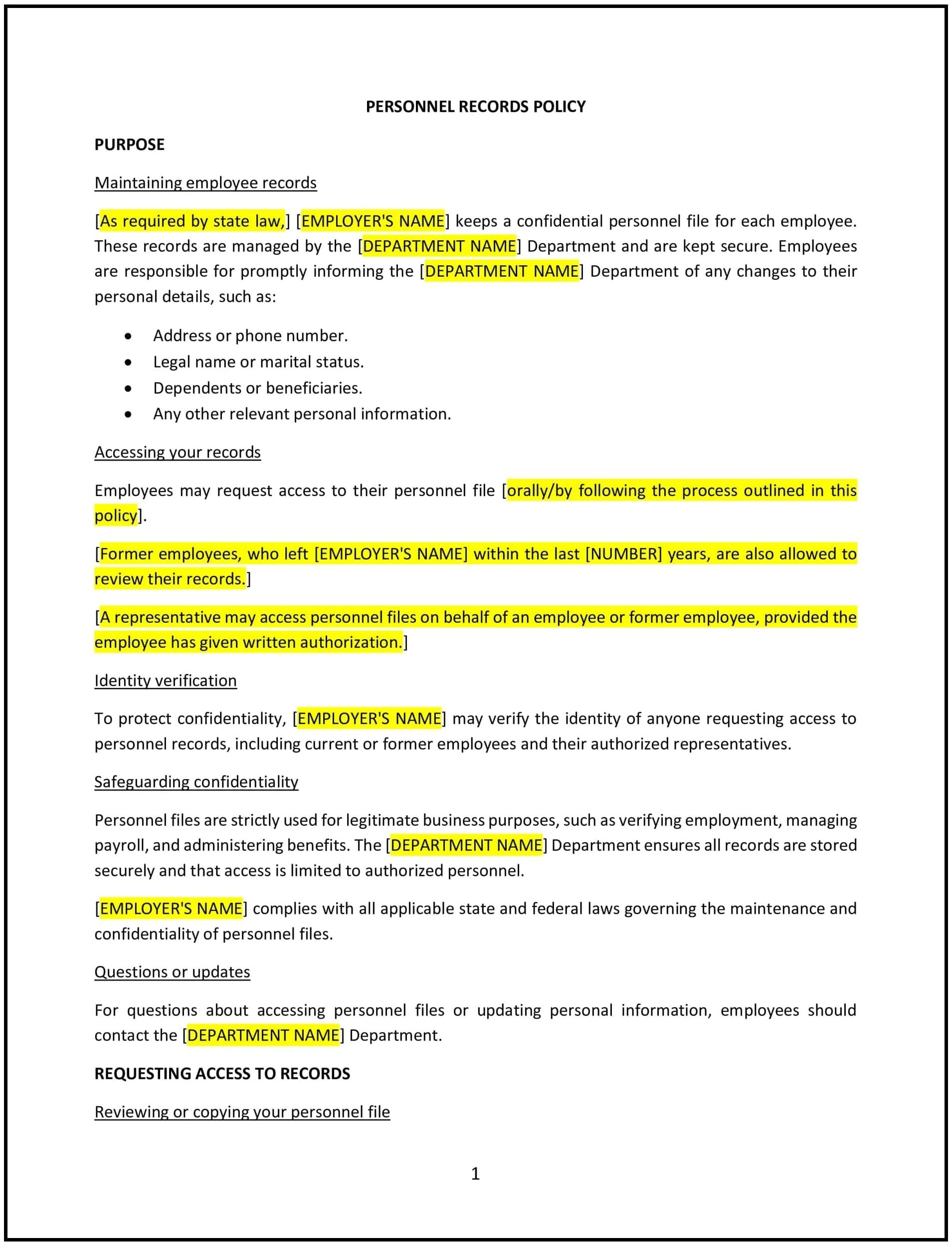Got contracts to review? While you're here for policies, let Cobrief make contract review effortless—start your free review now.

Customize this template for free
Personnel records policy (Nevada)
This personnel records policy is designed to help Nevada businesses manage employee records responsibly and in compliance with state and federal laws. It provides guidelines for maintaining, accessing, and safeguarding personnel files while ensuring transparency and protecting employee privacy.
By adopting this policy, businesses can streamline record management, enhance legal compliance, and build trust with employees.
How to use this personnel records policy (Nevada)
- Define personnel records: Clearly outline the types of records included, such as employment applications, performance reviews, payroll information, and disciplinary actions.
- Establish retention periods: Specify how long different types of records will be retained, aligning with Nevada and federal record-keeping requirements.
- Outline access protocols: Define who may access personnel records, such as HR staff or managers, and under what circumstances employees may review their own records.
- Ensure confidentiality: Implement measures to protect the confidentiality of personnel records, including secure storage and restricted access.
- Provide access rights: Inform employees of their rights to access their personnel files and the procedures for requesting a review.
- Address third-party disclosures: Set guidelines for sharing personnel records with third parties, such as in response to legal requests or with employee consent.
- Maintain record accuracy: Require regular updates to personnel files to ensure accuracy and completeness.
- Specify handling procedures: Include protocols for managing sensitive information, such as medical records or background checks, in compliance with applicable laws.
Benefits of using this personnel records policy (Nevada)
This policy provides several benefits for Nevada businesses:
- Promotes legal compliance: Aligns with Nevada and federal record-keeping laws, reducing the risk of penalties or disputes.
- Protects employee privacy: Ensures that personnel records are handled confidentially and securely.
- Enhances transparency: Provides employees with clear information about how their records are managed and accessed.
- Supports operational efficiency: Streamlines record-keeping processes, improving access and accuracy.
- Reduces legal risks: Establishes consistent practices for managing and disclosing records, minimizing liability.
Tips for using this personnel records policy (Nevada)
- Communicate the policy: Ensure employees are aware of their rights and responsibilities under the policy, including procedures for accessing their records.
- Train HR staff: Provide training to ensure personnel records are maintained, accessed, and disclosed in compliance with legal requirements.
- Monitor compliance: Regularly review record-keeping practices to ensure they align with this policy and applicable laws.
- Use secure systems: Implement secure physical and electronic storage solutions to protect personnel records from unauthorized access.
- Update regularly: Revise the policy periodically to reflect changes in laws, technology, or company operations.